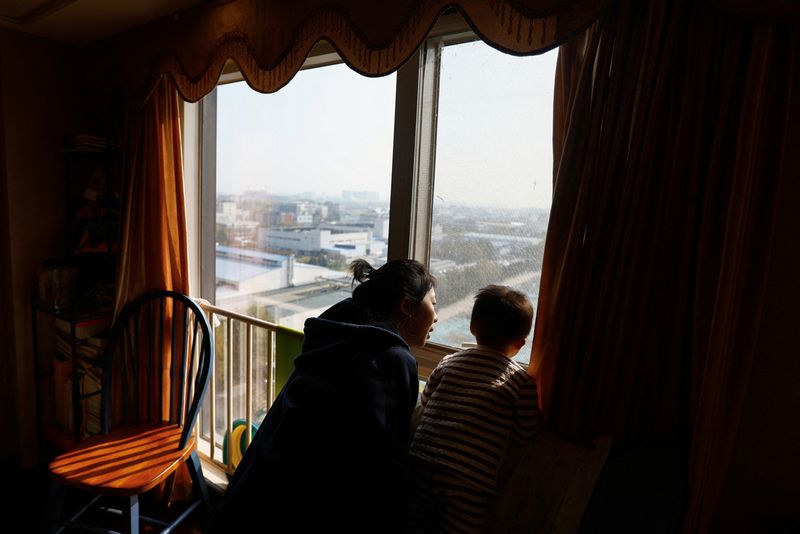Was it possible to avoid COVID restrictions in China and their consequences
2023.01.13 10:07

Was it possible to avoid COVID restrictions in China and their consequences
By Kristina Sobol
Budrigannews.com – Zhang Qi had experienced enough stress and uncertainty as a result of living under China’s strict COVID-19 restrictions for the past three years to consider not having children there.
According to the Shanghai-based e-commerce executive, the balance shifted to a definite “No” when China abruptly dismantled its “zero COVID” regime last month to allow the virus to spread freely.
Zhang’s final straw came from hearing stories about pregnant women and infants who were unable to see doctors because hospitals were overwhelmed with COVID infections.
I’ve heard that it’s horrible to give birth in a public hospital. The 31-year-old stated, “I really wouldn’t consider having a baby.”
When China releases its official data for the population in 2022 on January 17, it may shed light on the pandemic’s effects on the country’s already grim demographic outlook.
Some demographers predict that China’s population will fall for the first time since the Great Famine in 1961 in 2022. This is a significant change that will have far-reaching effects on the global economy and world order.
The number of new babies born in 2022 is expected to reach a record low, falling below 10 million from 10.6 million the year before, which was already 11.5% less than in 2020.
Wang Feng, a professor of sociology at the University of California, stated, “With this historical turn, China has entered a long and irreversible process of population decline, the first time in China and the world’s history.”
“China’s population could be reduced by 45% in less than 80 years. The world will never again recognize it as China.
In 2021, the total population of China increased by 480,000 to 1.4126 billion. When India takes over as the most populous nation in the world, the United Nations projects that China’s population will begin to fall this year.
Experts from the United Nations project that China’s population will fall by 109 million people by 2050, more than three times as much as they predicted in 2019.
China’s fertility rate of 1.18 in 2022 was the lowest and well below the 2.1 OECD standard for a stable population, despite the fact that nine of the ten countries with the most people in the world are seeing declines in fertility.
The nation, which enforced a one-child policy from 1980 to 2015, acknowledged officially that it was on the verge of a demographic decline last year when the National Health Commission stated that the population could begin to decline before 2025.
In October, President Xi Jinping stated that the government would implement additional measures to raise the birth rate in the nation.
In order to encourage more births, the government has implemented measures since 2021, such as tax deductions, extended maternity leave, improved medical insurance, and housing subsidies.
They haven’t had much of an impact so far.
China’s Baidu (NASDAQ:) searches for baby strollers online decreased by 17% in 2022 and 41 percent since 2018, respectively, and searches for baby bottles have decreased by more than a third since 2018. On the other hand, searches for senior care facilities increased by eightfold last year.
India is experiencing the opposite, with Google (NASDAQ:) According to trends, searches for baby bottles will increase by 15% annually in 2022, while searches for cribs will almost double.
The YuWa Population Research think tank stated this month that key factors affecting the fertility rate include the financial burden of children’s education, some of the most stressful college entrance exams in the world, and a nursery enrollment rate of only about 5.5% for children under the age of three, which is significantly lower than the OECD average.
An aging society will have a significant economic impact.
Yi Fuxian, a demographer, predicts that the proportion of people 65 and older will rise to 37 percent in 2050, up from 14 percent last year and 5 percent in 1980. Due to a decline in births, its workforce will not be replenished at the same rate.
“China is getting old before it gets rich”: “Rapid aging is slowing down China’s economy, decreasing revenues, and increasing government debt.”
Murphy, a 22-year-old student at Beijing’s Communication University of China, claimed that the slow economy would prevent her from having children.
Last year, the lockdowns brought the economy down to one of its lowest growth rates in nearly 50 years.
Murphy said, “The pandemic reinforced my view,” but she didn’t say her last name for privacy reasons. Why would I want to have children, even if I could afford to live on my own?
More UK GDP growth surpassed analysts’ expectations








